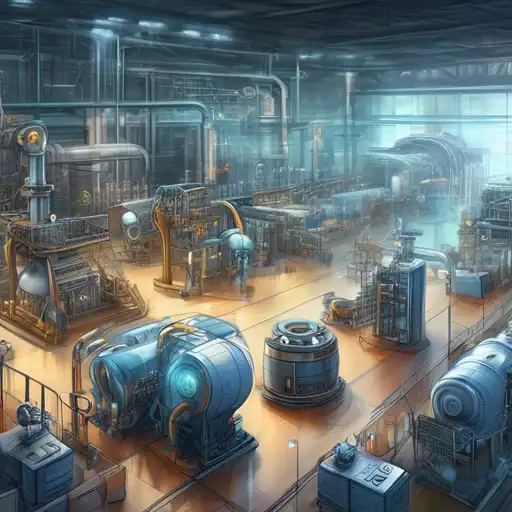Revolutionizing Industrial Automation: The IoT Effect
The integration of the Internet of Things (IoT) into industrial automation has marked a significant turning point in how industries operate. This technological synergy is not just enhancing efficiency but is also paving the way for smarter, more connected manufacturing environments. In this article, we delve into the profound impact IoT is having on industrial automation, exploring its benefits, challenges, and future prospects.
Understanding IoT in Industrial Automation
IoT refers to the network of physical devices embedded with sensors, software, and other technologies to connect and exchange data with other devices and systems over the internet. In the context of industrial automation, IoT enables machinery and equipment to communicate seamlessly, leading to unprecedented levels of automation and data exchange in manufacturing technologies.
The Benefits of IoT in Industrial Automation
The adoption of IoT in industrial automation brings numerous benefits, including:
- Enhanced Efficiency: IoT devices can monitor and optimize production processes in real-time, reducing downtime and increasing productivity.
- Predictive Maintenance: By analyzing data from sensors, IoT can predict equipment failures before they occur, minimizing unplanned downtime.
- Energy Savings: Smart sensors can optimize energy use, significantly reducing operational costs.
- Improved Safety: IoT can monitor environmental conditions and equipment status to enhance workplace safety.
Challenges to Overcome
Despite its benefits, integrating IoT into industrial automation is not without challenges. These include concerns over data security, the need for significant upfront investment, and the complexity of integrating new technologies with existing systems. However, with continuous advancements in technology and cybersecurity, these challenges are becoming increasingly manageable.
The Future of IoT in Industrial Automation
The future of IoT in industrial automation is bright, with trends like Industry 4.0 driving further integration. As technologies such as AI and machine learning continue to evolve, their combination with IoT will unlock even more potential for smart manufacturing. The key to success lies in embracing these changes and investing in the necessary infrastructure and skills.
In conclusion, the impact of IoT on industrial automation is transformative, offering a pathway to more efficient, safe, and sustainable manufacturing processes. As industries continue to navigate the challenges and opportunities presented by IoT, the potential for innovation and growth is limitless.
